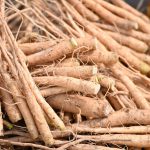Introduction
A natural first aid kit blends traditional herbal wisdom with basic emergency care to create a safe, effective, and eco-conscious response to everyday injuries and ailments. Whether you’re at home, camping, or on the road, a well-stocked natural kit can be your go-to solution for cuts, burns, bug bites, colds, and more — without relying on synthetic chemicals.
In this guide, you’ll discover what to include, how to store it, and how to use each item safely and effectively.
🌿 Why Choose a Natural First Aid Kit?
Natural remedies have been trusted for centuries to treat minor injuries and support healing. Here’s why people turn to herbal first aid:
- Fewer side effects than over-the-counter drugs
- Sustainable and biodegradable ingredients
- Multifunctional remedies (one herb, many uses)
- Connection with nature and traditional healing knowledge
A natural kit doesn’t replace professional medical care for serious issues but supports self-care and minor wound management.
🧰 Core Items for a Natural First Aid Kit
Here’s a list of essentials, broken into helpful categories:
1. Wound Care & Skin Healing
- Witch Hazel (Hamamelis virginiana) – Astringent for cuts, scrapes, and bruises
- Plantain Leaf (Plantago major) – Soothes stings, bites, and draws out splinters
- Calendula Salve – Antimicrobial and anti-inflammatory for cuts, rashes, and chafing
- Raw Honey (Manuka if possible) – Natural antibacterial wound dressing
2. Pain Relief & Inflammation
- Arnica Gel or Tincture – For bruises, sprains, and sore muscles
- Turmeric Capsules or Powder – Internal support for inflammation
- White Willow Bark – Herbal alternative to aspirin (use with caution)
3. Antiseptics & Infection Prevention
- Tea Tree Oil (Melaleuca alternifolia) – Natural antiseptic for fungal or bacterial infections
- Lavender Essential Oil – Antibacterial, calming, and good for burns or cuts
- Alcohol-free Herbal Tincture of Echinacea – Boosts immune defense
4. Digestive Support
- Ginger Tea or Capsules – For nausea, indigestion, or motion sickness
- Chamomile Tea Bags – For upset stomachs, stress, or eye compresses
- Activated Charcoal Powder – Natural detox for food poisoning or gas
5. Respiratory & Cold Care
- Thyme or Oregano Tincture – Antibacterial and antiviral properties
- Peppermint Oil – For headaches, congestion, or cooling effect
- Elderberry Syrup – Immune support during colds and flu
6. Stress & Sleep
- Rescue Remedy (Bach Flower Essence) – Emotional support during trauma or anxiety
- Valerian Root or Passionflower – Natural sleep aids
- Lavender Sachets or Oil – Calms nerves and promotes relaxation
🪶 Optional But Helpful Extras
- Beeswax Wraps or Muslin Cloths – For poultices or compresses
- Small Glass Dropper Bottles – For tincture use
- Sterile Bandages, Tweezers, Gauze Pads – Natural remedies still need proper application
- Reusable Tin or Pouch – Keep everything organized and portable
🧴 How to Store Your Kit
- Store herbs and tinctures in dark glass containers
- Keep your kit in a cool, dry place, away from direct sunlight
- Label everything clearly with name, date, and usage
- Check and refresh contents every 6–12 months
🛡️ Safety Tips
- Always patch test new topical remedies
- Research herb-drug interactions if you’re on medication
- Avoid essential oils on children under 2 unless specified safe
- Keep dosages conservative for internal use — when in doubt, consult a herbalist
🌿 Final Thoughts
A natural first aid kit empowers you to care for yourself and your loved ones using time-tested herbal remedies. It’s practical, personal, and deeply satisfying to create a healing space that reflects your values and connection to the earth.
Start with the basics, personalize your kit over time, and enjoy the peace of mind that comes with being prepared — naturally.




Comments are closed.